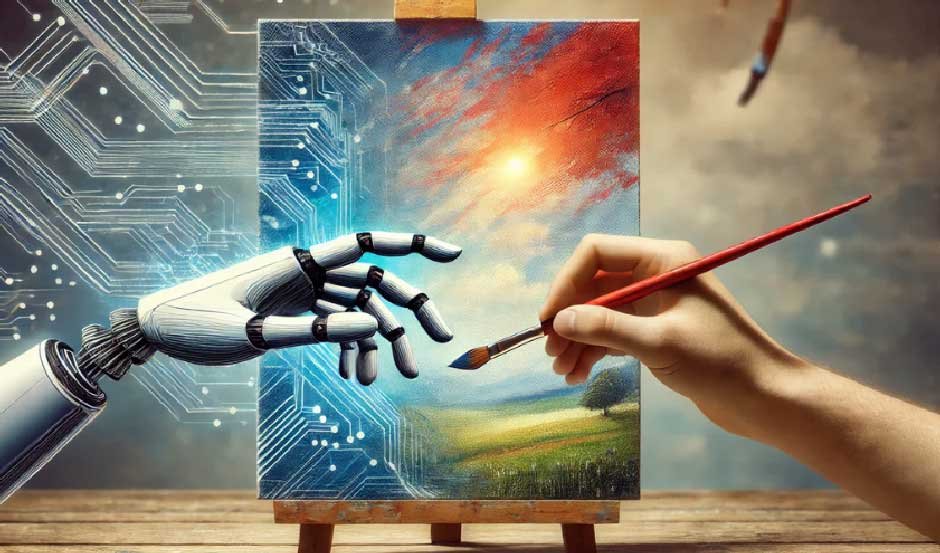Skip to the good bit
ToggleAI-generated art has exploded in popularity, but not without controversy. While artificial intelligence enhances education, productivity, and innovation through tools like an AI virtual agent that handles tasks in real time, its role in the creative world is far more divisive. Many artists, designers, and fans argue that AI art is unethical, creatively hollow, and even legally questionable. From copying without consent to replacing skilled labor with instant image generation, the backlash is growing.
Why is AI art bad, and what drives such strong opposition? This article lays out the ethical breaches, the creative void, and the economic threats fueling the debate—and what they signal about the future of human-driven art.
Why Do People Hate AI Art?
- It devalues human creativity and skill
One major reason why people hate AI is that it reduces years of training, technique, and artistic growth to a few typed prompts. For many, this undermines the entire purpose and discipline of being an artist. - AI art threatens artist livelihoods
A key argument for why AI art is bad lies in economics: companies profit from AI models trained on human-made artwork—without credit, consent, or compensation—leaving real artists struggling to compete. - It lacks soul, intention, and authorship
Critics say AI-generated images are missing something essential: human emotion, meaning, and creative intention. Why is AI art bad? Because without an artist’s vision, many feel it isn’t art at all—just mimicry generated by code.
Why Is AI Art Controversial?
Copyright and consent issues
AI art models are trained on massive datasets scraped from the internet—often using artists’ work without permission. This raises serious concerns about copyright infringement and ethical data use.
Bias and unethical outputs
Because these models learn from unfiltered online content, they often reproduce gender, racial, and social biases. This has led to AI generating offensive or discriminatory images, damaging public trust.
Commercialization without compensation
Many paid AI art platforms profit from unpaid, uncredited human artwork. While the companies monetize AI outputs, the original artists receive nothing—fueling resentment and legal scrutiny.
Arguments for AI Art (And Why They Fail)
“It’s just a new tool”
This argument overlooks a core issue. Traditional tools (like Photoshop or cameras) support human creativity—AI replaces it. In most cases, there’s no human author guiding the final product, which blurs the definition of art.
“Artists always adapt”
Yes, many artists adopt new mediums—but AI’s automation threatens to displace creators altogether. Especially in commercial sectors like illustration, game design, and advertising, the replacement isn’t creative evolution—it’s economic erasure.
Why Is AI Art Unethical?
Many argue that AI-generated art is unethical because it’s built on a foundation of uncompensated, uncredited human labor. Unlike other AI tools, art generators often operate in legal and moral gray zones—leaving creators without control or recognition.
Here’s why people hate AI art and consider it unethical:
- No transparency in data sourcing
Artists have no way of knowing if their work was scraped to train AI—and no option to opt out. - It exploits creative labor
AI systems rely on decades of human-created art, yet artists receive no credit, payment, or visibility in return. - Undermines the value of skill and originality
Many feel that turning prompts into polished visuals cheapens the meaning of creativity, replacing effort with automation. - Commercial gain without consent
AI art tools generate profit from copyright-infringing practices, fueling industry-wide resentment.
Final Thought: Where AI Belongs in Creativity
AI has proven its worth in areas like education, productivity, and automation—from coding assistants to personalized AI tutors. But when it comes to art, the ethical line is much sharper.
Until AI-generated art respects the rights of human creators—legally, ethically, and economically, it will remain more controversial than innovative. True creativity still requires authorship, intention, and respect.







